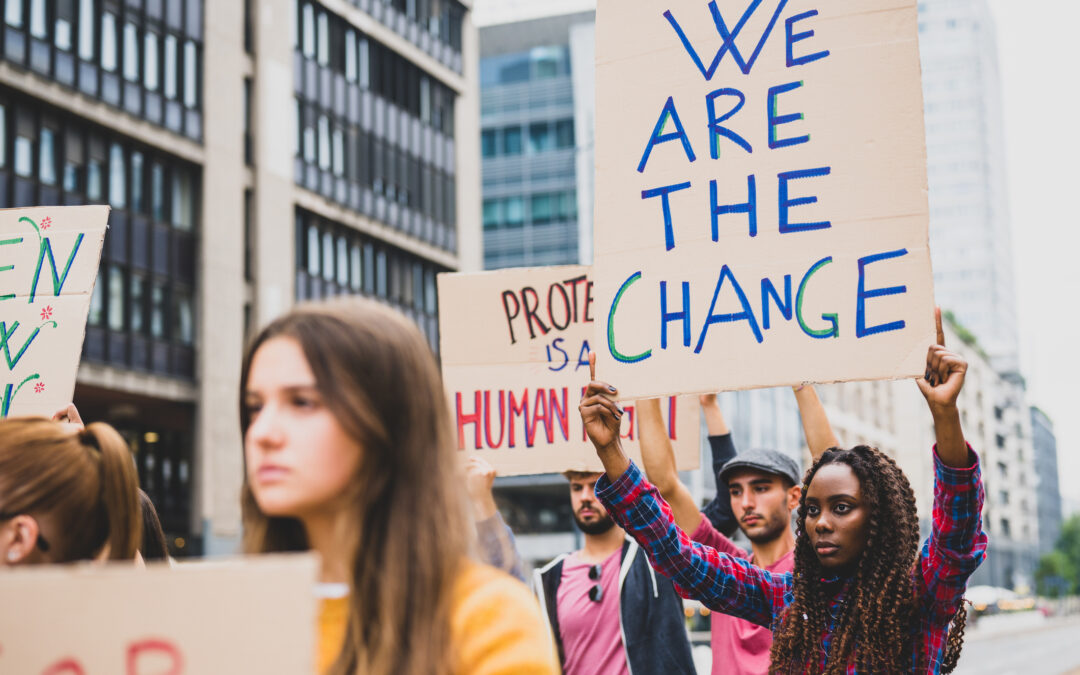In recent years, organizations have been expected to play a role in conversations around social change. But according to a new survey from The Conference Board, less than half of US workers (44%) are satisfied with their organization’s response to social change issues like racism and gun violence.
Indeed, 87% say organizations should always or sometimes respond to social change issues. But the type of response is important: Most workers prefer that an organization take internal action rather than public action to address an issue.
The type of issue also matters: More than half of surveyed employees expect internal action on diversity, equity, and inclusion issues like ageism and gender inequity, compared to only around a quarter who expect internal action on nationalism, geopolitical conflict, or gun violence.
“It’s important for organizations to carefully consider the issues they will respond to and how these issues fit with employee expectations,” said Robin Erickson, PhD, Vice President of Human Capital at The Conference Board. “Employees want to see real action on the issues that matter most to them. Getting it right can improve not only employee engagement, but customer satisfaction as well.”
Can Companies Remain Silent?
“Silence on social change issues is becoming less of an option for many organizations,” said Diana Scott, Leader of the US Human Capital Center, The Conference Board. “But responses need to be both agile and authentic, while also taking into account to the often-competing concerns of different stakeholders.”
The latest workforce survey from The Conference Board was fielded from November 8 to December 4 and polled over 800 US employees—predominantly office workers. Some responses are compared to those from a late 2020 survey on the same topic. Respondents weighed in on the issues that mattered most to them and their organization’s response to those issues. Key findings include:
Workers are not satisfied with their organization’s response to social change issues.
- Less than half (44%) are satisfied with their organization’s response.
- 87% say organizations should always or sometimes respond to social change issues.
- 39% say yes, they should always respond.
- 48% say sometimes they should respond.
- In late 2020, there were higher expectations:
- 72% said yes.
- 27% said sometimes.
Racism, gun violence, and geopolitical conflict are the issues that matter most to US workers.
- 40% of surveyed US workers say racism is the most important social change issue.
- Gun violence and geopolitical conflict are a close second at 38% of workers.
- In 2020, the top three social change issues were racism, gender inequity, and unemployment (note: we did not ask about geopolitical conflict in 2020).
Most workers prefer internal action more than public action on an issue.
- For example, only 32% want their organization to take public action regarding racism. This was the social change issue that garnered the most support for public action.
- That’s compared to 51% who want internal action on racism.
Employees expect more internal action on diversity, equity, and inclusion issues.
- Ageism and gender inequity are the top issues workers expect internal action on at 57%.
- 51% expect internal action on racism.
- 48% say LGBTQ+ inequity and benefit inequity should receive internal action.
Less employees expect internal action on nationalism, geopolitical conflict, or gun violence.
- Only 24% expect internal action on geopolitical conflict.
- 25% expect internal action on gun violence.
- 29% expect internal action on nationalism.
- Indeed, about 40% say organizations should not respond to nationalism, geopolitical conflict, or gun violence—the top issues that employees say do not require any response.
Employees’ expectations are not being fully met on the issues they care about most.
- No organizational response to a social change issue satisfied more than half of those surveyed.
- Only 44% of employees are satisfied with their organizations’ response to racism.
- 43% are satisfied with the response to gun violence.
- 45% are satisfied with the response to geopolitical conflict.
CEOs are the main communicators about social change issues.
- 70% say their CEO is the main communicator about social change, followed by the CHRO at 51%.


Recent Comments